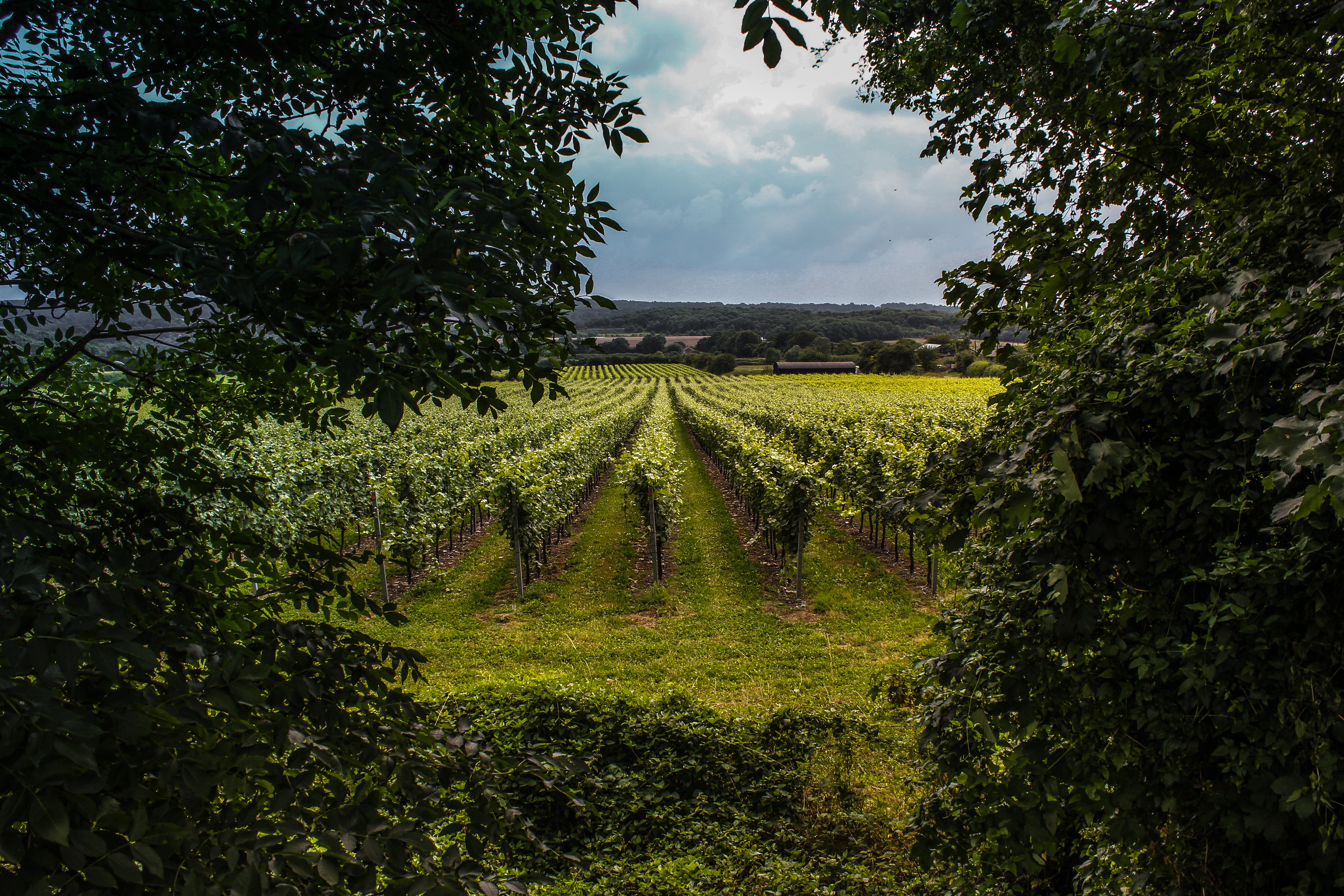Why climate change could be good news for UK wine
A team of researchers has projected that over the next two decades global heating is likely to increase the potential for UK wine production

Wine growing conditions in parts of the UK could resemble those in famous growing regions of France and Germany in the next 20 years due to climate change, new research has found.
Global heating has already contributed to a growth of the number of vineyards in the UK and helped to produce award-winning wine.
Now a team of researchers has projected that over the next two decades it is likely to increase the potential for UK wine production and allow new areas in England and Wales to grow varieties that at present are hardly grown here, including still pinot noir, sauvignon blanc and riesling.
While the climate crisis will overall mean more extreme weather events in the UK such as heat waves and heavy rainfall, some sectors – including British winemakers – may also see some positive benefits from an otherwise alarming outlook.
The researchers from the University of East Anglia, the London School of Economics, the vineyard and winery consultancy Vinescapes and weather forecasting company Weatherquest used the latest climate projections to model and map opportunities for winemaking in the UK.
They found that since the 1980s in parts of southeast and eastern England there has been warming of over 1C during the growing season, and projected that more warming is to come.
Their findings published Friday in the journal OENO One show how the climate of a larger area of England and Wales is projected to become suitable for reliably growing sparkling wine grape varieties, and how the potential for high-quality still wine production is emerging.
“We’ve seen viticulture in the UK expand nearly 400 per cent from 761 to 3,800 hectares between 2004 and 2021,” lead UEA researcher Professor Steve Dorling said.
The researchers said there were now more than 800 vineyards in the UK, and that a warming climate has meant yields and quality of pinot noir and chardonnay grape varieties have become more reliable.
“Warm, dry UK growing seasons like 2018, with lower than average disease problems in the vines, led to production of a record-breaking 15.6 million bottles and these growing conditions have already become and are projected to become more common,” said Prof Dorling.
Between 2021-2040, parts of East Anglia, Lincolnshire, south-central England, northeast Wales and coastal areas in southwest England and southern Wales are projected to have 2018 “conditions” in 60–75 per cent of years, the authors of the report said.
This means the exceptional 2018 vintage will become more common.
The study’s lead author, Dr Alistair Nesbitt, of vineyard and winery consultancy Vinescapes, said that they had found significant areas within England and Wales are projected to become warmer by up to a further 1.4C during the growing season by 2040.
“This expands the area of suitability for pinot noir for sparkling wine production, but also new areas will open up within the growing season temperature suitability range for still pinot noir production and for growing varieties such as sauvignon blanc, riesling, semillon and more disease-resistant varieties,” he said.
But the report also warns that British weather will remain unpredictable and that consequently producers need to remain “agile”, particularly when it comes to developing brands tightly associated with a variety of wine.
Join our commenting forum
Join thought-provoking conversations, follow other Independent readers and see their replies
Comments